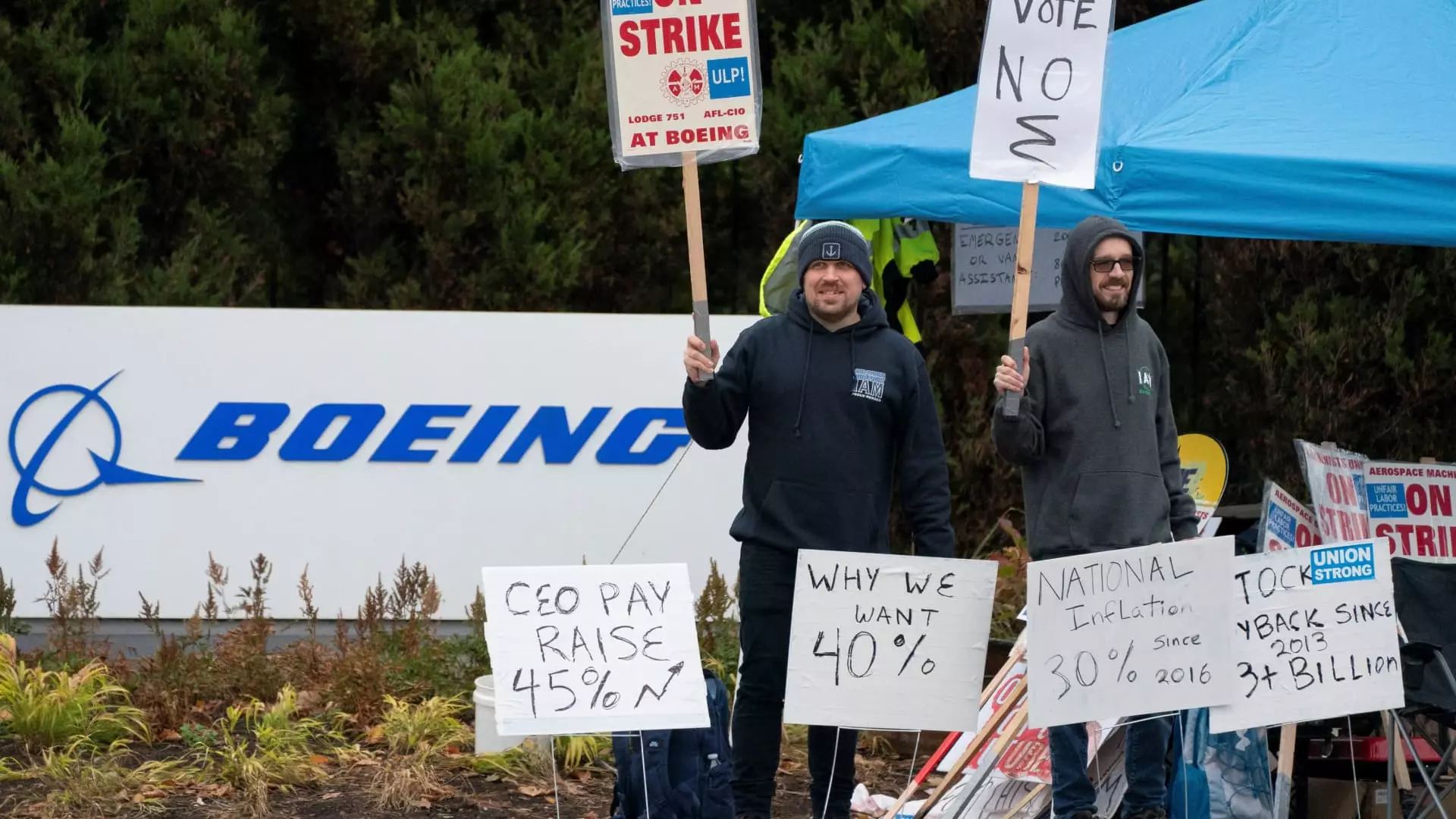In a crucial moment for Boeing, the company has reached a new agreement with its machinists’ union that could potentially conclude a seven-week strike that has significantly impacted operations. The International Association of Machinists and Aerospace Workers District 751 has strongly encouraged its members to approve the new proposal, emphasizing that they believe further negotiations could lead to less favorable terms in the future. This sentiment reflects the tough reality faced by union workers, who have been negotiating for better wages and working conditions amid a rising cost of living in the Seattle area.
The negotiation cycle is often a complex and drawn-out process, particularly in unionized environments where workers are fighting for equitable compensation and fair labor practices. The union’s message resonated with its members, signaling that the hard-fought gains achieved through the strike may not be sustainable if they continue to withhold their labor. Acknowledging the limits of labor strike effectiveness, union leadership is urging members to recognize the progress they have made thus far and to consider the risks associated with prolonged labor disputes.
The latest offer includes a series of significant wage increases that could bolster workers’ earnings substantially. Over the span of four years, the new package proposes a hefty 38% raise. When combined with compounding pay increases from previous agreements, workers could see total pay increases close to 44%. Additionally, workers are presented with a choice between receiving a one-time ratification bonus of $12,000 or opting for a lower immediate payment of $7,000 accompanied by a $5,000 contribution to their 401(k) plans.
The impact of these potential increases cannot be understated, especially in a region where living costs have soared due to the booming tech landscape fostered by major players like Microsoft and Amazon. For many machinists, the wage hike comes as a necessary remedy to the economic pressures they face. As noted in Boeing’s communication, these changes are expected to culminate in an average annual machinist salary of $119,309, which represents a considerable improvement over previous wage scales and highlights the importance of these negotiations.
Boeing is navigating a tumultuous landscape, marked by extensive financial challenges and operational setbacks, with reported losses exceeding $6 billion in recent quarters. The recent strike appears to exacerbate these difficulties, particularly as the company strives to stabilize its position in the aerospace sector. The ramifications of production flaws, coupled with a series of safety incidents, have put immense pressure on Boeing’s leadership. The machinations surrounding such strikes can often create a vicious cycle, where labor disputes distract from critical operational corrections.
CEO Kelly Ortberg’s recent comments indicate a commitment to resolving these pressing issues while striving to meet employee needs. However, recent events, including the rejection of an earlier proposal, suggest that significant work remains before the company can fully repair the trust and stability needed between its management and employees.
As workers prepare to cast their votes on the new proposal, the outcome of this decision will carry profound implications for both the machinists and Boeing as a whole. A successful ratification could pave the way for increased productivity and morale among the workforce, facilitating a more collaborative atmosphere. Conversely, a rejection could prolong the strike and further complicate Boeing’s recovery efforts.
The ongoing negotiations and the resulting vote reflect broader questions about labor relations in an evolving economic environment. With both corporations and unions grappling with the realities of modern economies, the outcome of this pivotal moment at Boeing resonates within and beyond the aerospace industry. The struggle for fair compensation in the face of inflation and increased living costs encapsulates a pressing narrative in contemporary labor discussions. Therefore, the decision made by Boeing’s machinists will not only shape their immediate future but also serve as a case study for other sectors facing similar challenges as they navigate the crossroads of labor rights and corporate responsibility.


Leave a Reply